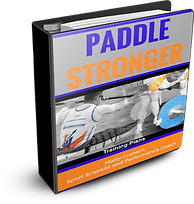Choosing the Perfect Training Partner
- Feb 25, 2014
- 3 min read
Training partners can be worth their weight in goal. They can be the force that gets you out the door on those wet and cold mornings, the competition to push yourself harder than normal in your intervals, the safety net when taking on those big missions, along with the support and camaraderie needed to get through a long build up. On the other hand training partners can be your undoing. Turning every session into a race, knocking your confidence through underhand 'joking' comments, slowing you down or turning your session in to a gossip fest rather than an interval set.
5 steps to choosing the perfect training partner
1) Motives:
It is important that you and your training partner are on the same page so both of you can get the best results out of your training. This includes outlining your long term goals as well as your sessions aims. Some people are happy to 'tag along' on another person's specific training session. I would suggest however if you have a specific training programme designed for you then it is important that you complete your sessions and not let your training partner throw you off course. If they want to 'tag along' with your session, then that's fine. But if they have a different session then it is often possible to perform your different sessions alongside each other or it might be in everyone's best interest to meet up at the start of the session and then go your separate ways before coming back together at the end of the session for a catch up. The bottom line is to always put YOUR goals first and make sure you tick off YOUR training sessions.
2) Look outside your race:
It can be really beneficial to train with athletes from outside of your target race. This removes any competition between each other, so you are more likely to mutually support each other and give up your egos for the greater good. This works particularly well when athletes are competing in the same event but in different sections, grades or age groups.
3) Look outside your sport:
If you are a triathlete or multisporter, then training with athletes who compete in single discipline sports can be really useful. Riding with cyclists is a great way to develop your biking handling skills and learn some underhand roadie tactics. Paddling with K1 paddlers will boost your technique, extend your limits and show you what it is like to push hard in a boat. I personally think swim and run squad's are a huge benefit for triathletes and mutlisporters. Most of the time triathletes and multisporters just get out and run. If you immerse yourself in a good squad of 'pure' athletes you will soon find this is just a small part of what they do. Stretching, range work, technique drills, activation exercises and pacing work are all things that are not in many triathletes and multisporters training vocabulary but are regularly included in running squads. Once you get a look at how the other side lives you will take you training to a new level.
4) Better than you:
At certain times it is extremely beneficial to train with other who are better than you. Whether it is for them to push you harder than normal in interval sets, learn specific tips and tricks from or keep you safe in risky situations such as long river paddles or back country missions. Some people find it hard to train with others who are better than them as they are self-conscious about their ability and holding up/slowing down other people. As long as everyone is on the same page about this then it should not be an issue and you will take your performance to a new level.
5) Worse than you:
At times it is very effective to train with others who are worse or slower than you. Active recovery sessions are ideal times to train with someone who is slower than you. Friends, partners or children are ideal training partners during some sessions. They help you resist the urge to push out of your recovery zone as well as it allows you to spend time with others who you may not normally get to during training. Training with someone who is not as technically good as you is a way for you to consciously think about your technique as you take more of a coaching/ teaching role during the session.

So there you have it. When you are next looking through your contacts thinking about who you are going to train with tomorrow think about who would be the best person to call so that you get the best value out of your session.








.png)




.png)









Comments